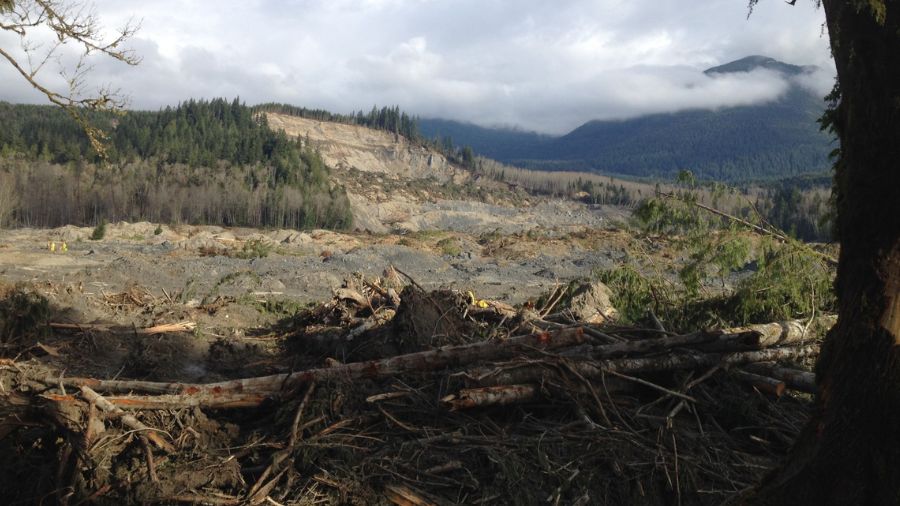Seattle City Light contributes $4.5 million to preserving Skagit Valley headwater
Jul 1, 2022, 2:20 PM | Updated: 3:51 pm

Update:
This week the Seattle City Council finalized a deal to contribute $4.5 million to the Skagit Environmental Endowment Commission (SEEC) in order to secure the mining rights to a region known as the “donut hole,” in order to protect the land for environmental conservation.
Seattle City Light has set aside 1,250,000 to help fund the transfer which is facilitated through the State of Washington, which awarded $4,500,000 of the general fund in a grant to City Light, which through a Letter of Intent, agreed to help coordinate the transfer of these contributions to the Commission.
The overall deal is part of a protracted legal battle between mining companies, environmentalists, and government officials from both sides of the U.S.-Canada border in order to stop mining in the headwaters of the Skagit River.
“Seattle City Light applauds the commitment and determination of the Skagit Environmental Endowment Commission in securing the surrender of mineral and related rights in the Donut Hole. We are pleased to have been a party to this historic and precedent-setting transboundary victory to protect and restore this vulnerable area,” a representative from Seattle City Light said.
The SEEC will now control the mining rights to the region and will use this power to protect the environmentally significant region.
“I convey our tremendous sense of resolution and closure after more than three decades of efforts to extinguish the mineral tenures that would have enabled commercial mineral mining on Silverdaisy Mountain and that posed an existential threat to ecosystem integrity in the upper Skagit River watershed. This culmination is an environmental victory not just for the headwaters of the Skagit River in British Columbia but for the entire river to its mouth in the Salish Sea.” Leo Bodensteiner, the U.S. co-chair of the SEEC.
Original:
Ending a years-long battle between environmentalists and mineral rights stakeholders in British Columbia, the mining rights to a 14,000 acre swath of forest at the headwaters of the Skagit River — previously slated for gold, silver, and copper search and extraction — have been surrendered to the province of B.C.
The government of B.C. announced last week that it had acquired the mineral rights to the Silverdaisy area of the Canadian Skagit headwaters from Imperial Metals for a reported sum of $24 million Canadian dollars. The buyout is represented by a coalition of stakeholders, including the state of Washington ($4.5 million has been earmarked for protection of the “Skagit River from future development” in Gov. Jay Inslee’s proposed 2022 budget to the Legislature).
The mining company has held the mineral rights to the area since 1988. Much of the area is a part of Skagit Valley Provincial Park and protected, although the “donut hole” stretch of the Silverdaisy watershed in question was earmarked for mining under subsequent mineral rights agreements in 1995.
The Union of B.C. Indian Chiefs (UBCIC) has long held that the Silverdaisy watershed must be protected from logging and mineral extraction to preserve the region’s grizzly bears and endangered northern spotted owls. UBCIC, in partnership with Washington Wild — a forest conservationist nonprofit — and a Washington state congressional delegation began calling on B.C. to suspend logging operations in the area in 2019.
“We breathe a collective sigh of relief as the signed MOA [Memorandum of Agreement with Imperial Metals] ends the endangerment of vulnerable wildlife populations in the Upper Skagit region and sends a clear message that corporate interests will not be prioritized over the invaluable, diverse ecosystems within the Skagit River Watershed,” wrote Grand Chief Stewart Phillip in a news release.
The Skagit River is also a crucial spawning ground for the Puget Sound’s salmon populations. Its protection is a focal point of Gov. Inslee’s proposed $187 million spending package intended to preserve the state’s 14 endangered salmon species.
“This agreement will help protect our natural environment for generations to come,” wrote Gov. Inslee in a news release. “The Skagit River is one of the most diverse salmon habitats in Washington state, including for Chinook, which are essential to the survival of the revered southern resident orca. This agreement is a shining example of the importance of cross-border collaboration when confronted with challenges that know no borders.”
The agreement was brokered by the Skagit Environmental Endowment Commission (SEEC), a binational coalition from B.C. and the city of Seattle charged with preserving the Upper Skagit watershed.
“Protecting the Skagit River by extinguishing these mining tenures is a historic step forward in the stewardship of the Upper Skagit watershed,” wrote a SEEC representative. “Protecting this sensitive and diverse ecosystem with its significant fish and wildlife populations starts at the headwaters to the Skagit River within the Upper Skagit.”
“We commend the Skagit Environmental Endowment Commission, a model for transboundary collaboration for the past 35 years, for their vision and persistence in retiring these mineral tenures so that the Province can permanently protect the Silverdaisy area,” wrote Seattle Mayor Bruce Harrell in a news release.













